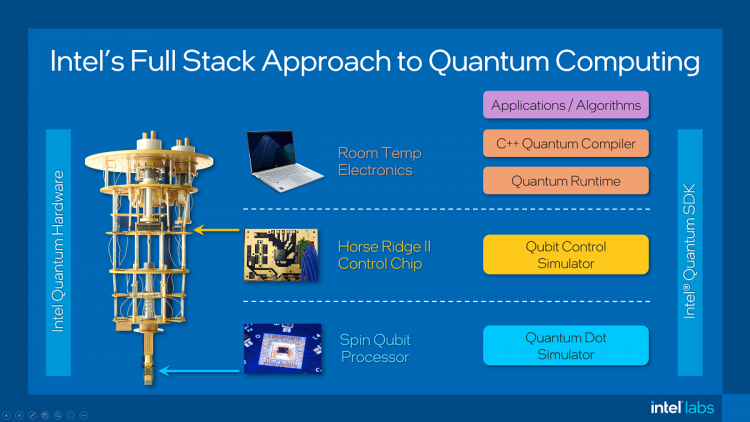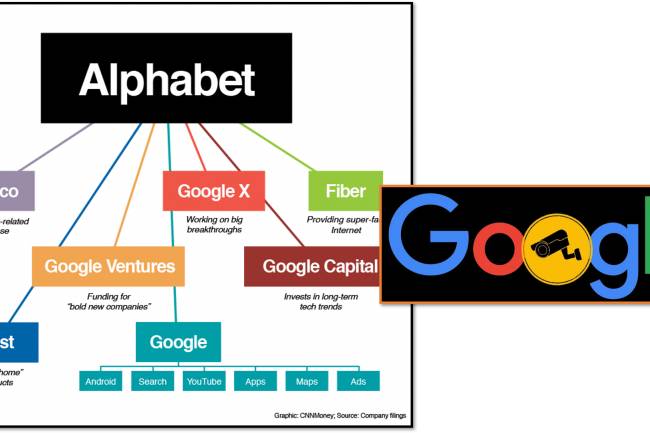Quantum Computing: The Next Frontier of Computing
Quantum computing
Quantum computing is a rapidly developing field of computer science that uses the principles of quantum mechanics to solve problems that are intractable for classical computers. Quantum computers are able to perform certain calculations exponentially faster than classical computers by taking advantage of quantum mechanical effects, such as superposition and entanglement.

The basic unit of information in quantum computing is the qubit, which can exist in a superposition of its two "basis" states, 0 and 1. This means that a qubit can be in both states at the same time, which gives quantum computers a huge advantage over classical computers when solving certain problems.
One of the most promising applications of quantum computing is in cryptography. Quantum computers could be used to break current encryption algorithms, which would have a major impact on cybersecurity. Quantum computers could also be used to develop new drugs and materials, simulate complex systems, and solve other problems that are currently beyond the reach of classical computers.
The development of quantum computing is still in its early stages, but it is a rapidly growing field with the potential to revolutionize many aspects of our lives.
Here are some of the potential applications of quantum computing:
- Drug discovery: Quantum computers could be used to simulate the behavior of molecules, which could help researchers develop new drugs more quickly and efficiently.
- Materials science: Quantum computers could be used to simulate the properties of materials, which could help researchers design new materials with desired properties.
- Financial modeling: Quantum computers could be used to model complex financial systems, which could help to improve risk management and investment decisions.
- Artificial intelligence: Quantum computers could be used to develop new artificial intelligence algorithms that are more powerful and efficient than current algorithms.
- Optimization: Quantum computers could be used to solve optimization problems, such as finding the shortest path between two points or the best way to allocate resources.
- Simulation: Quantum computers could be used to simulate complex systems, such as the weather or the human brain.
These are just a few of the many potential applications of quantum computing. As the technology continues to develop, we can expect to see even more exciting and transformative applications in the years to come.
In addition to these specific benefits, quantum computing also has the potential to:
- Break current encryption algorithms: Quantum computers could be used to break current encryption algorithms, which would have a major impact on cybersecurity. This could make it easier for criminals to steal data or commit fraud.
- Create new forms of encryption: Quantum computers could also be used to create new forms of encryption that are resistant to attack by quantum computers. This would help to protect data from being stolen or compromised.
- Accelerate the development of new technologies: Quantum computing could accelerate the development of new technologies in a wide range of fields, such as medicine, materials science, and artificial intelligence. This could lead to new breakthroughs that improve our lives in many ways.
“The potential benefits of quantum computing are vast and exciting. However, it is important to note that quantum computing is still in its early stages of development. There are many challenges that need to be overcome before quantum computers can be used to solve real-world problems. However, the potential rewards are great, and the field of quantum computing is rapidly advancing. I am confident that we will see many amazing things from quantum computers in the years to come.”
Here are some specific examples of how quantum computing is being used in common life today:
- D-Wave Systems: D-Wave Systems is a company that develops quantum computers for commercial use. Their products are used by researchers in a variety of fields, including drug discovery, materials science, and financial modeling.
- Google AI Quantum: Google AI Quantum is a research team that is developing quantum computers for use in artificial intelligence. Their work is focused on developing new algorithms and applications for quantum computers.
- IBM Quantum: IBM Quantum is a research initiative that is developing quantum computers for use in a variety of industries. Their products are used by researchers and businesses around the world.
These are just a few of the companies and organizations that are working on quantum computing. As the technology continues to develop, we can expect to see even more companies and organizations getting involved in this exciting field.
It is still too early to say when quantum computing will become a part of our everyday lives. However, the potential benefits of quantum computing are vast and exciting. I am confident that we will see many amazing things from quantum computers in the years to come.






















